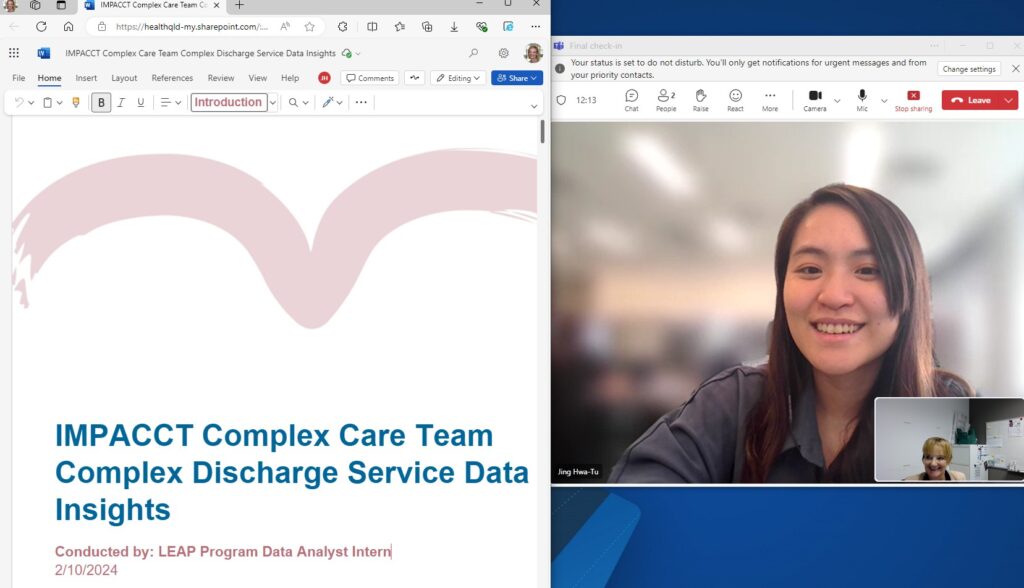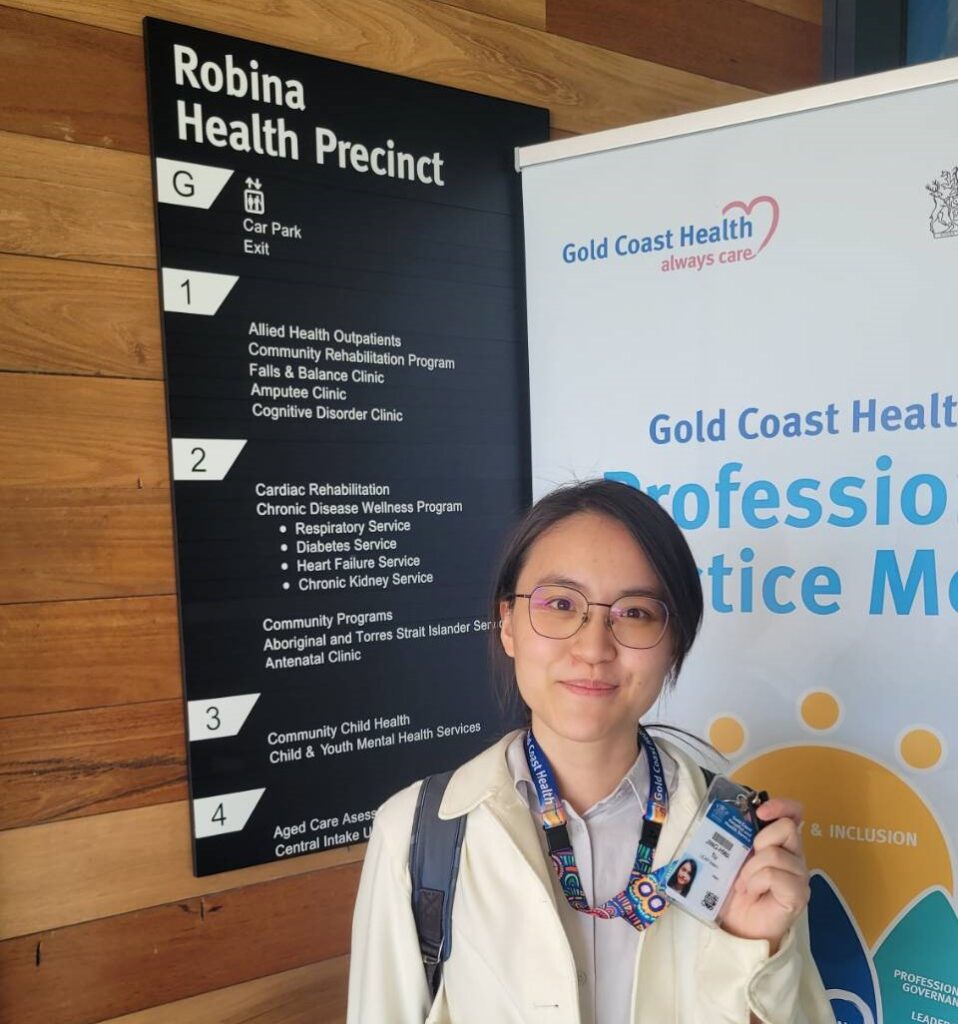Gold Coast Health Internship

Describe
During my internship at Gold Coast Health under the Robina Health Precinct, I worked as a data analyst intern for the IMPACCT team (Integrate Multidisciplinary Acute and Post-Acute Complex Care Team). The primary focus of my role was to analyze data and assess the effectiveness of the complex discharge service. Specifically, I aimed to determine whether the service was helping patients manage their health better by reducing hospitalizations, emergency department visits, and length of stay. This internship provided me with a unique opportunity to apply my pharmacy background and Master of IT (Data Analytics) skills within a healthcare environment.
Throughout my internship, I collaborated closely with multidisciplinary healthcare teams. I held meetings with my manager, the Allied Health Program Manager, and other staff to understand their goals. Their objective was to develop an automated and sustainable reporting system to monitor whether their services improved patient outcomes and reduced hospital bed occupancy, especially for patients with complex health conditions involving chronic or acute diseases, disabilities, or socioeconomic challenges.
Interpret
This experience was a great learning opportunity in both technical and interpersonal aspects. Technically, I improved my skills in data analysis, cleaning, and visualization using KNIME and Power BI. I also developed report-writing skills, producing structured reports with clear insights. Additionally, I gained confidence in presenting findings in a way that non-technical healthcare professionals could easily understand.
On a broader level, I learned about the complex nature of healthcare data. For example, I realized that understanding diagnostic codes (such as Australian Diagnosis Related Groups, DRG) is crucial for accurate data interpretation. I also recognized the importance of continuous communication with the multidisciplinary team to bridge the gap between the data and the real-world healthcare context.
Moreover, I discovered that working in the healthcare sector aligns with my personal and professional interests. The sector has rich datasets, and I see tremendous potential for improvement through data-driven approaches—a space where I hope to contribute as a healthcare data analyst in the future.
Evaluate
While I was able to develop meaningful visualizations, there were challenges. Understanding the meaning of the data columns in the spreadsheets was difficult since I was unfamiliar with the service workflows. This made me heavily dependent on frequent communication with the data analyst and multidisciplinary team to clarify the context. However, due to their busy schedules, I had limited opportunities to meet with them and only managed three feedback iterations. This limited my ability to refine my methodology and improve the final report.
A key challenge was that proving the impact of the complex discharge service through numbers alone was difficult. Patients in these programs often have multiple, overlapping health and social issues, making it hard to quantify improvements with simple metrics. As a result, I couldn’t conclusively demonstrate improved patient outcomes through data analysis. However, this taught me that health outcomes cannot always be fully captured through numbers and highlighted the need for qualitative data alongside quantitative data.
Despite these challenges, I succeeded in developing technical skills and found ways to communicate complex findings to healthcare staff effectively. I also realized that I need to enhance my understanding of healthcare terminologies and diagnostic systems to perform more efficient analyses in the future.
Plan
Looking ahead, I plan to continue developing my skills as a healthcare data analyst. I will focus on learning more about diagnostic codes, including Australian and international coding standards (ICD), to better interpret healthcare data. I also aim to improve my communication and collaboration skills by seeking more frequent interactions with multidisciplinary teams in future projects.
To further my learning, I will explore healthcare data systems like hospital information systems (HIS) and stay updated with emerging trends in healthcare analytics. I am committed to continuous learning and improvement, as I believe these are crucial for thriving in this field. Ultimately, my goal is to become a healthcare data analyst, leveraging both my pharmacy background and data analytics expertise to contribute to better patient outcomes and more efficient healthcare systems.
